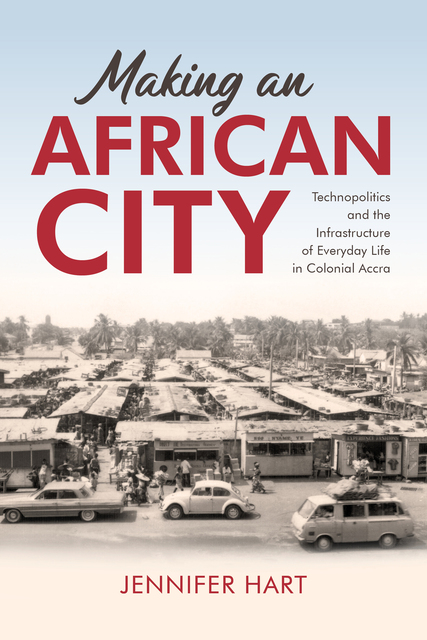Making an African City
Technopolitics and the Infrastructure of Everyday Life in Colonial Accra
In Making an African City, Jennifer Hart traces the way that British colonial officials, Accra Town Council members, and a diverse group of technocrats used regulation to define what an "acceptable" city looked like. Unlike cities elsewhere on the continent, Accra had a long history of urbanism that predated British colonial presence. By criminalizing some activities and privileging others, colonial officials sought to marginalize indigenous practices of Accra residents and shape the development of a new, "modern" city.
Hart argues, however, that residents regularly pushed back, protesting regulations, refusing to participate in newly developed systems, reappropriating infrastructure, demanding rights to city services, and asserting their own informal vision for the future of the city. While urban plans and regulations ultimately failed to substantively remake the city, their effects were and are still felt by urban residents, who are often subject to but not served by urban infrastructure.
Making an African City explores how the informalization of Accra's development was a historical process, not a natural and self-evident phenomenon, which connects the history of the city with the history of urban development and the growth of technocracy around the world.

Table of Contents
Metadata
- isbn978-0-253-07137-8
- publisherIndiana University Press
- publisher placeBloomington, Indiana USA
- rightsCC-BY-NC-ND 4.0
- rights holderIndiana University Press
- rights territoryWorld
We use cookies to analyze our traffic. Please decide if you are willing to accept cookies from our website. You can change this setting anytime in Privacy Settings.

